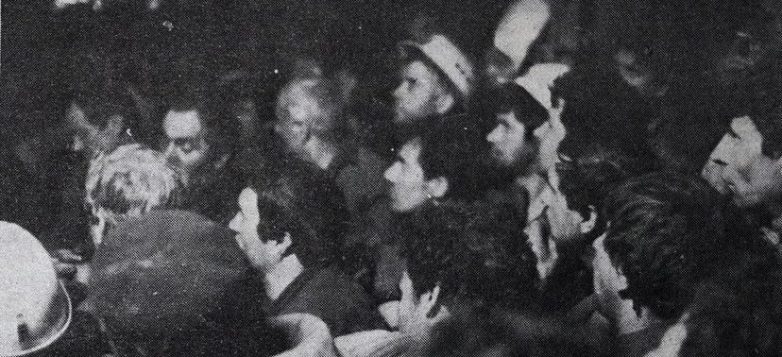Trepça at that time, I am talking about 1924, the research started by the English, yes. And in the year 1927, they began working on the mine, while in 1930 the testing production took place, daily production was 500 tons. The method was exploitation, classic methods, very difficult during which there were many accidents, many people died. We even have the statistics of the years ‘48, ‘49, ‘50, throughout the year, twelve people lost their lives at the mine. The cause of it was safety measures, they weren’t at a satisfactory level and the work conditions were very difficult. Now the time during which my grandfather worked, you know he worked somewhat until ‘50s. In the ‘50s, he had the opportunity to leave jobs and he did because of the poor work conditions and the work in the mines was really hard, there were no micro-climatic conditions, air conditioning was weak. The work was physically demanding, the loading was done by shoveling in the trolleys. The trolleys were pushed manually. This is probably something that pushed him to leave that job because he could not handle the hard work in those difficult conditions. This was during the Second World War occupation, it was forced labor in the mines. It was wartime and really no one really asked them much, they were forced to work and they did work. […] Yes, actually [Germans] forced them at that time, and you either had to join their army or work in the Trepça mine. To tell you the truth, our family was also politically persecuted by the Communist system. […] Perhaps that is the reason he left the job, such pressures he could not handle, our family was known as a Ballist [National Front] family.
Shyqri Sadiku was born in 1963 in the village Bare, Municipality of Mitrovica. In 1981, he completed the Technical High School in Mitrovica, and, in the same year, he was employed as a mining technician in the Trepça mine. During the ‘90s, together with other Albanian miners, he was expelled from work. After the 1999 war, Mr. Sadiku returned to work in the mine. From 2016 to 2019, he was the president of the Independent Syndicate of Trepça Miners. Currently, he is director of production at Stantrg.
